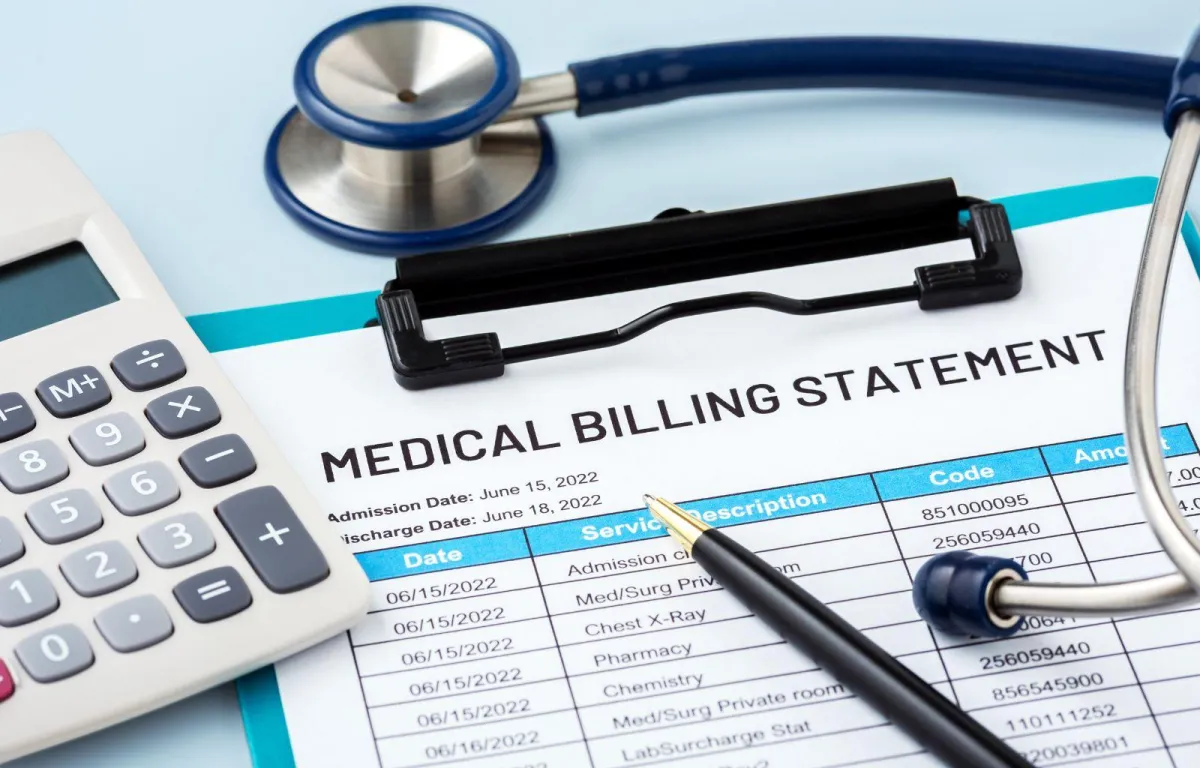Pennsylvania Debt Relief
If you live in Pennsylvania and are struggling with credit card balances, medical bills, or other unsecured debt, you are not alone. Rising housing costs in Philadelphia, Pittsburgh, and Allentown, combined with wage stagnation in rural and former industrial counties, make it difficult for many households to stay on top of monthly bills. Debt Support National (DSN) provides structured debt relief programs that can lower balances, consolidate multiple accounts, and guide Pennsylvanians toward long-term financial stability.

5-Star Reviews!

Pennsylvanians and Debt
Pennsylvania’s economy relies on healthcare, education, energy, and manufacturing. While urban centers such as Philadelphia and Pittsburgh continue to expand, many former steel and coal towns face economic decline. Families in rural Pennsylvania often experience higher poverty rates and limited job opportunities, leaving them more vulnerable to revolving debt.
Medical debt is also a significant burden, given Pennsylvania’s large hospital systems like UPMC and the University of Pennsylvania Health System. Rising living expenses and reliance on personal loans or credit cards further strain household budgets. With credit card interest rates exceeding 20% nationally, balances can quickly become delinquent accounts or charge-offs. These challenges highlight the importance of structured debt relief programs that help Pennsylvanians manage repayment.
When you work with DSN, you can expect:
Personalized Debt Review – A certified specialist examines your income, expenses, and debts to recommend the most effective strategy.
One Simplified Monthly Payment – Replace multiple accounts with one affordable program payment, often less than your current combined minimums.
Clear Timeline to Resolution – Many Pennsylvania clients complete their programs within 24 to 48 months, depending on the debt amount and chosen plan.
See Our Reviews
Pennsylvania Debt Relief Options
Pennsylvania residents can access several programs designed to reduce or reorganize unsecured debts.
Debt Settlement in Pennsylvania
Debt settlement allows you to resolve debts for less than what you owe by negotiating directly with creditors. DSN advocates on your behalf to secure agreements where lenders accept partial repayment as full satisfaction of the balance. The process generally includes:
Consultation – A debt specialist reviews your accounts to determine if settlement is appropriate.
Enrollment – You begin setting aside money in a secure account that you control.
Program Connection – DSN connects you with trusted partners who work with creditors and collection agencies to reduce outstanding balances.
Resolution – Funds from your account are used once settlements are finalized.
Eligible debts include credit cards, medical bills, payday loans, unsecured personal loans, and marital debt. Excluded obligations include secured debts such as mortgages and car loans, along with court-ordered responsibilities like child support and alimony.
Debt Consolidation in Pennsylvania
Debt consolidation combines multiple unsecured debts into one new loan with a single monthly payment. For many borrowers, this reduces interest charges and makes repayment more manageable. Residents often seek consolidation loans through community banks, local credit unions, or national online lenders. This option is best for individuals with stable income and fair-to-good credit.
Debt Management Plans (DMPs)
A DMP, typically arranged through a nonprofit credit counseling agency, consolidates unsecured debts into a single monthly payment. These programs often provide reduced interest rates and waived late fees. Most DMPs in Pennsylvania last three to five years, creating a structured and predictable path toward debt freedom.
State Laws and Protections
Pennsylvania has consumer protection laws that strengthen federal safeguards for residents managing debt:
Fair Debt Collection Practices Act (FDCPA) – Federal law that prohibits harassment, threats, or deceptive behavior from debt collectors.
Pennsylvania Fair Credit Extension Uniformity Act (FCEUA) – Regulates debt collection practices at the state level and requires fair treatment of consumers.
Pennsylvania Unfair Trade Practices and Consumer Protection Law (UTPCPL) – Enforced by the Pennsylvania Attorney General, this law addresses unfair or deceptive acts, including abusive debt collection.
Wage Garnishment Restrictions – Pennsylvania is one of the few states that generally prohibits wage garnishment for consumer debts such as credit cards and medical bills. Exceptions apply to child support and certain tax obligations.
Statute of Limitations – For most unsecured debts, including credit cards and medical bills, Pennsylvania’s statute of limitations is four years under 42 Pa. Cons. Stat. § 5525. After this period, creditors cannot sue to collect, although unpaid debts may still appear on credit reports.
Residents should confirm that any debt relief provider is properly licensed and compliant with Pennsylvania law before enrolling in a program.

Pennsylvania Debt Relief FAQs
Does Pennsylvania allow wage garnishment for credit card or medical debt?
No. Pennsylvania is one of the few states that generally prohibits wage garnishment for unsecured consumer debts such as credit cards or medical bills. Exceptions exist for court-ordered child support and back taxes.
What is the statute of limitations on debt collection in Pennsylvania?
For most unsecured debts, including credit cards, personal loans, and medical bills, the statute of limitations is four years under 42 Pa. Cons. Stat. § 5525. After this time, creditors cannot sue to collect, although unpaid balances may still appear on your credit report.
How does Pennsylvania regulate debt collectors?
Pennsylvania enforces the Fair Credit Extension Uniformity Act (FCEUA), which works alongside the federal FDCPA to regulate collection practices. Collectors must provide written notice of a debt, avoid harassment, and accurately represent the balance owed.
Does Pennsylvania require debt relief companies to be licensed?
Yes. Any company offering debt settlement or adjustment services to Pennsylvania residents must comply with state licensing and consumer protection laws. Working with an unlicensed provider could expose consumers to excessive fees or unfair practices. The Pennsylvania Attorney General’s Office advises residents to verify a company’s credentials before enrolling in a program.
Can utility or medical debts be sent to collections in Pennsylvania?
Yes. Unpaid utility bills and medical balances are considered unsecured debts. Hospitals, including large systems like UPMC and the University of Pennsylvania Health System, may transfer unpaid accounts to collection agencies if bills remain delinquent.

Helping you achieve financial success with expert guidance and personalized strategies.
Opening hours
Mon - Fri : 9:00 AM - 7:00 PM
Saturday: 9:00 AM - 6:00 PM
Sunday: Closed
Disclaimer : Debt Support National is an independent website created to help users find a solution to their debt problems. Our service is free to use and you are under no obligation to accept any of the recommendations you receive. Calls may be recorded for training and quality purposes. Please check with your service provider for details. On completion of our form, we will introduce you to one of our authorised Debt Solutions provider. We use the contact details you have given us on the form to make this introduction. An adviser will contact you by telephone. During that call, the expert adviser will discuss your options in more detail to see if they can help.
Pulse Digital LLC does not directly administer debt management services. It is ultimately up to you to determine whether the company that we may introduce you to are appropriate for your situation.
Pulse Digital LLC is paid for providing marketing services to selected Debt Management companies who are legally appointed to manage debt adjustment services. They have no affiliation with your Creditors. They will offer free initial consultations with no further obligation.
We use cookies to give you the best experience. By using our website, you agree to our use of cookies in accordance with our cookie policy. Names and pictures associated with client testimonials are not real in order to protect the privacy of all clients.
www.deptsupportnational.com is owned by Pulse Digital LLC. Registered Address: 447 Broadway, 2nd Floor, 754, New York, NY 10013
© Debt Support National. 2025. All Rights Reserved.






